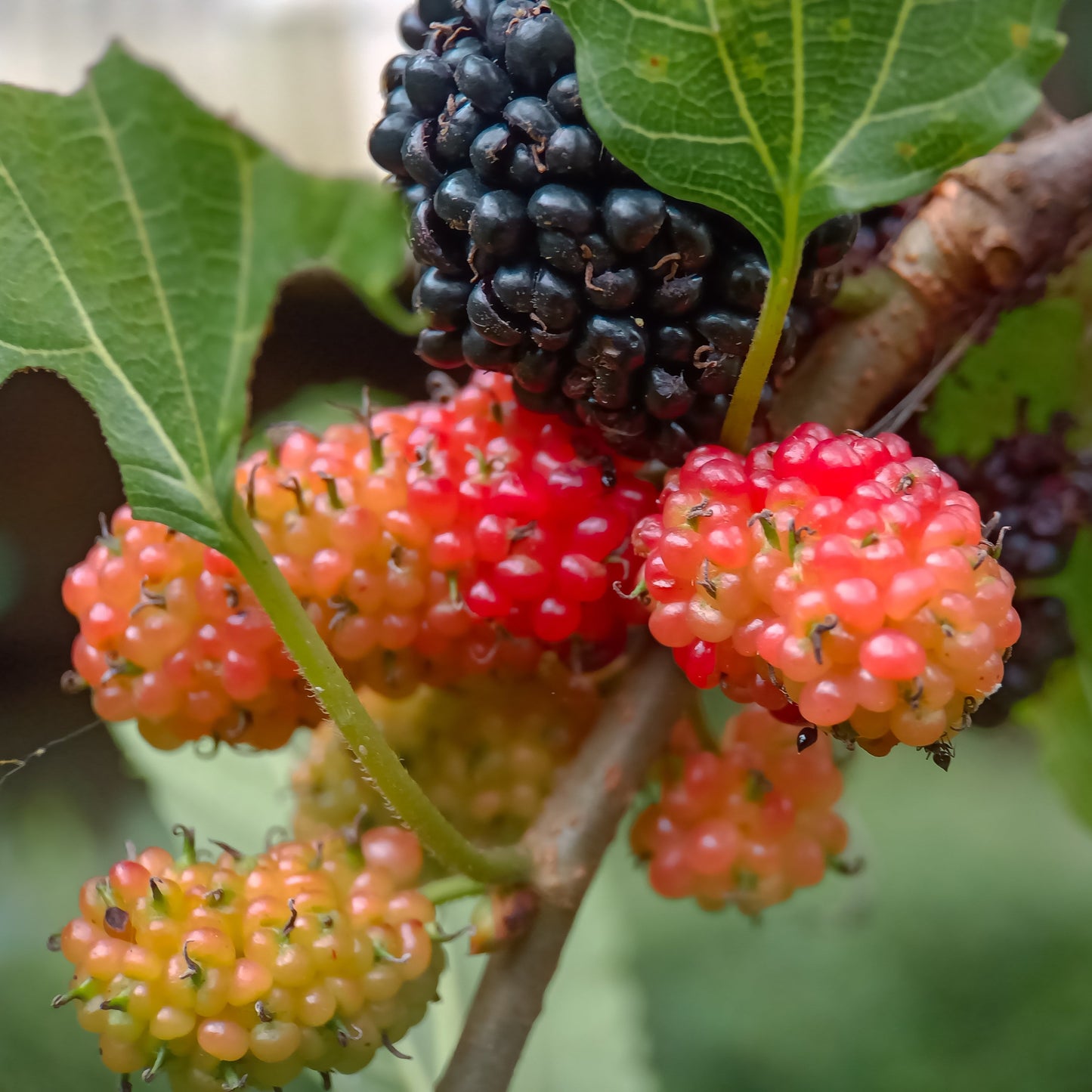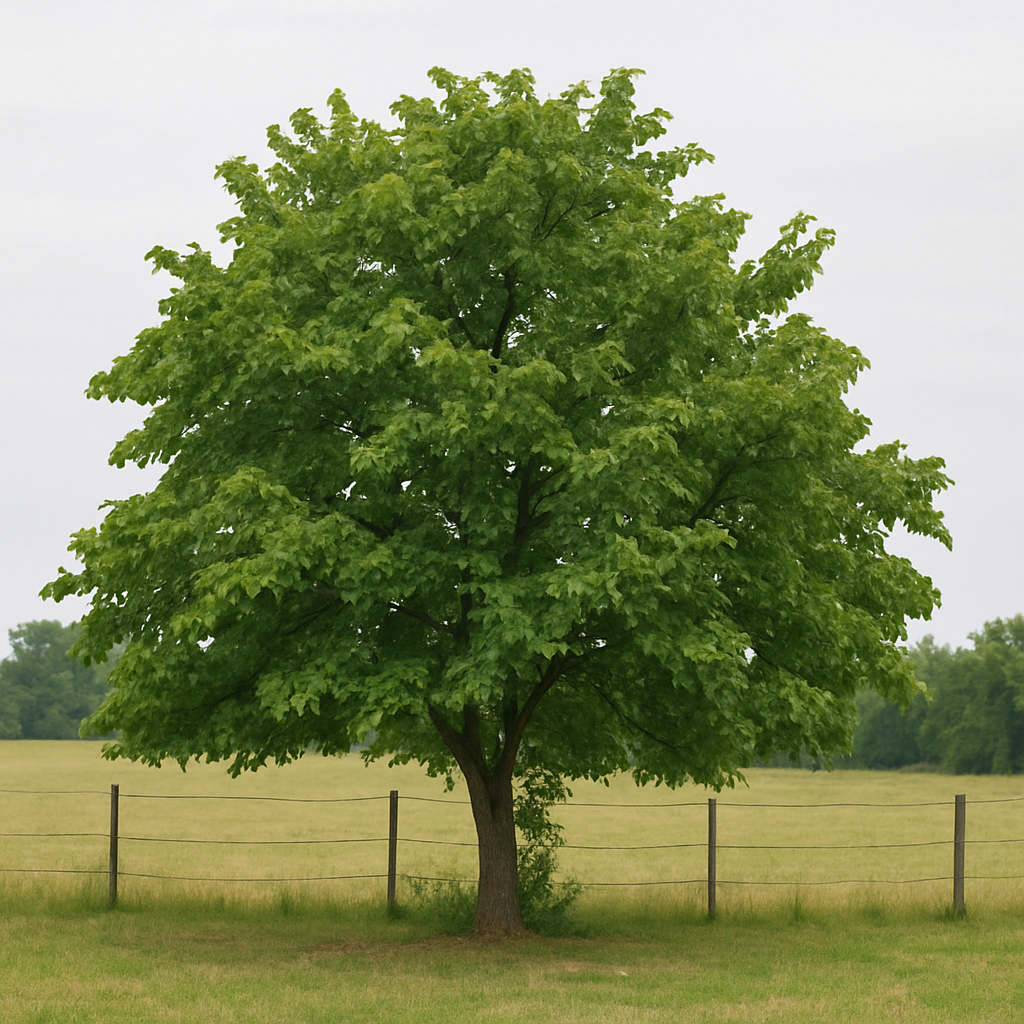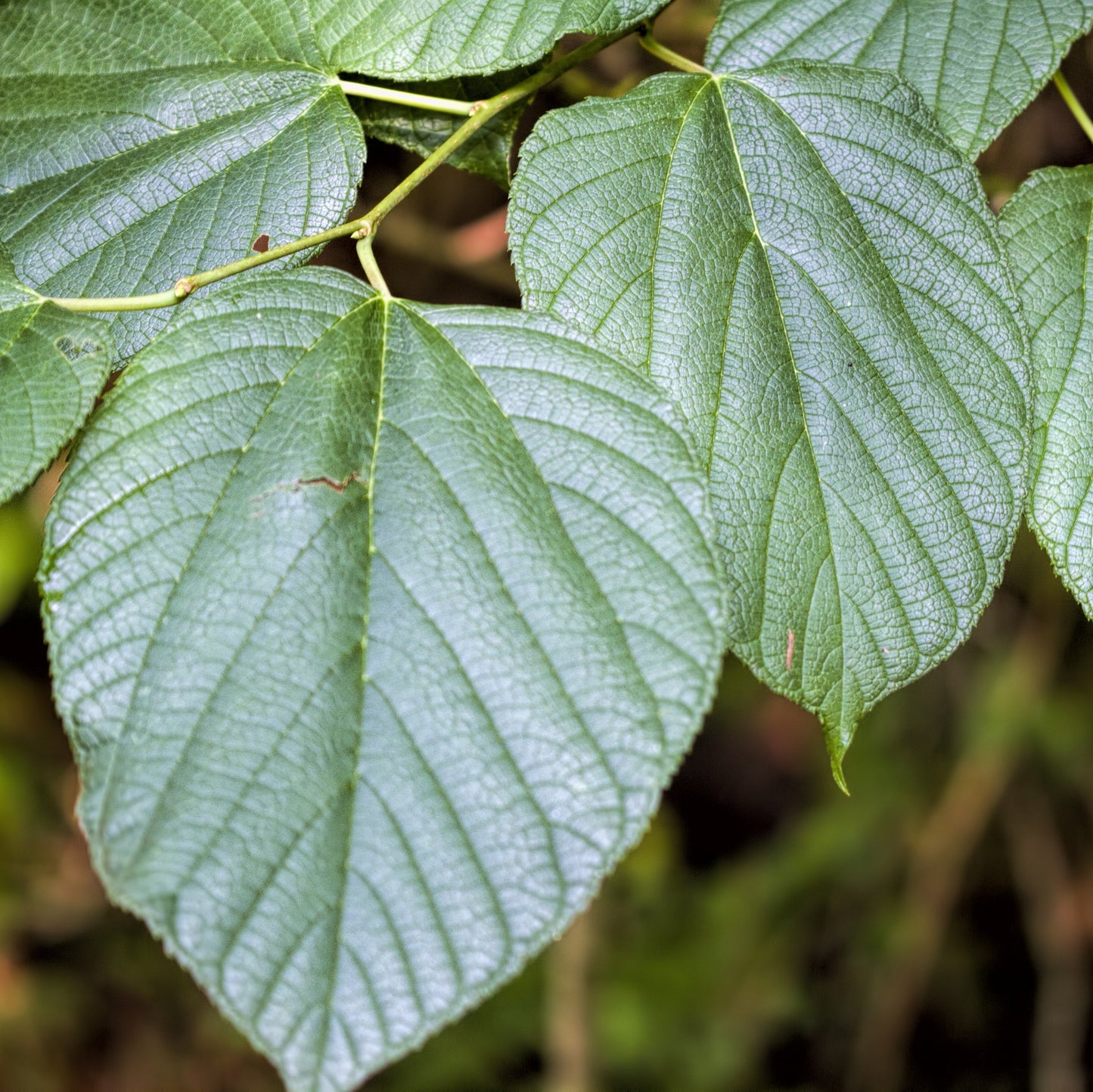Limited Quantities - Reserve Now For Fall
Red Mulberry Tree
Red Mulberry Tree
Couldn't load pickup availability
Morus rubra
Red Mulberry Tree
The Red Mulberry Tree is a fast-growing native fruit tree cherished for its sweet, blackberry-like fruit, wildlife value, and rich cultural history. With broad leaves, a rounded crown, and deep purple-red berries ripening in early summer, this North American native offers both beauty and bounty.
Perfect for food forests, wildlife gardens, or edible landscapes, the Red Mulberry is a long-lived tree that brings shade, fruit, and ecological benefits season after season.
Red Mulberry Tree Overview
|
Attribute |
Details |
|
🌿 Botanical Name |
Morus rubra |
|
🏷️ Common Names |
Red Mulberry, American Mulberry |
|
🌳 Mature Height |
35–60 feet |
|
🌐 Mature Width |
25–40 feet |
|
📈 Growth Rate |
Fast (2–3 feet per year) |
|
⏳ Lifespan |
75–125+ years |
|
🧊 USDA Zones |
4–9 |
|
❄️ Chill Hours |
400–800 hours |
|
☀️ Sun Preference |
Full sun to light shade |
|
🧱 Soil Type |
Tolerates many soils; prefers moist, well-drained loam |
|
⚖️ Soil pH |
Slightly acidic to neutral (5.5–7.0) |
|
💧 Water Needs |
Low to moderate; drought-tolerant once established |
|
🌸 Flower Color |
Greenish-white; inconspicuous (late spring) |
|
🍒 Fruit Type |
Deep red to black berries; sweet, juicy, and edible |
|
🐝 Pollinators |
Wind-pollinated; supports beneficial insects |
|
🌿 Growth Habit |
Spreading canopy, irregular branching |
|
↔️ Spacing |
20–30 ft from structures or other trees |
|
🏡 Landscape Uses |
Food forests, shade trees, wildlife habitat |
|
🧹 Maintenance Level |
Low once established |
Environmental Benefits
🌸 Provides nectar for native insects and early pollinators
🍒 Offers fruit for birds, squirrels, raccoons, and other wildlife
🌳 Supports native ecosystems and forest restoration efforts
🧲 Deep roots help stabilize soil and resist erosion
Pros & Cons
|
✅ Pros |
⚠️ Cons |
|
🍒 Produces delicious, antioxidant-rich fruit |
🍇 Can stain surfaces with dropped fruit |
|
🌳 Fast-growing and long-lived shade tree |
🧹 Requires space—can outgrow small areas |
|
🐦 High wildlife value; feeds birds and mammals |
🌿 Not ideal for manicured landscapes |
|
🧬 Native tree with historic cultural uses |
🐛 May attract webworms or whiteflies in humid areas |
|
💧 Drought-tolerant and low-maintenance |
✂️ Pruning needed to shape or manage size |
Planting & Care Guide
🛁 Water deeply when planting and during dry spells in year one
🕳️ Dig a hole 2–3x wider than the root ball; keep crown at soil level
🌾 Apply mulch to conserve moisture and protect the root zone
💦 Reduce watering once the tree is established
✂️ Prune during dormancy to remove crossing branches or manage form
🧪 Feed in early spring with compost or a balanced tree fertilizer
The Red Mulberry Tree is a rugged, fruit-producing native that brings shade, flavor, and habitat to your landscape. Whether feeding your family or your local wildlife, this tree delivers sweet returns for generations.
Share






